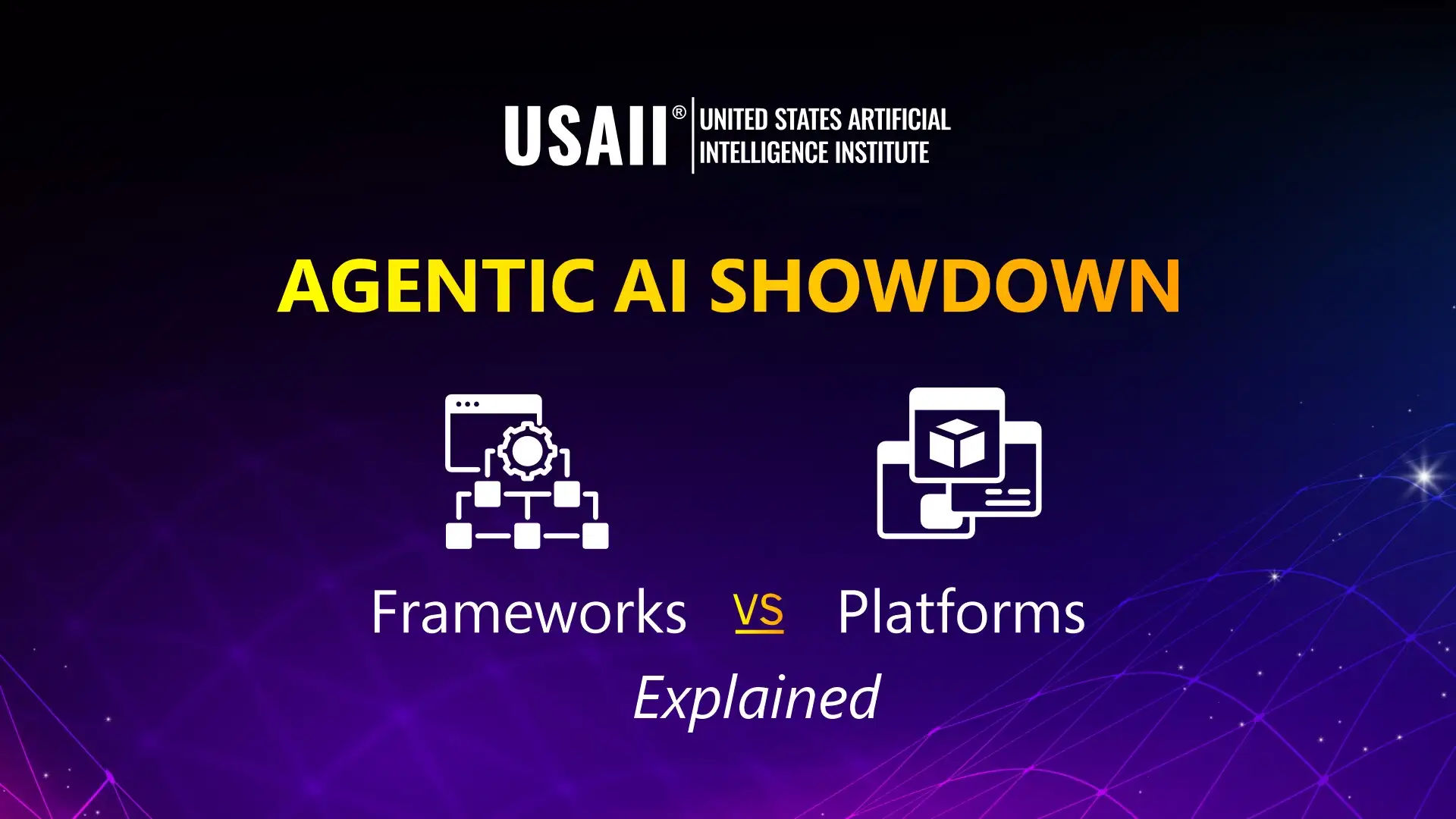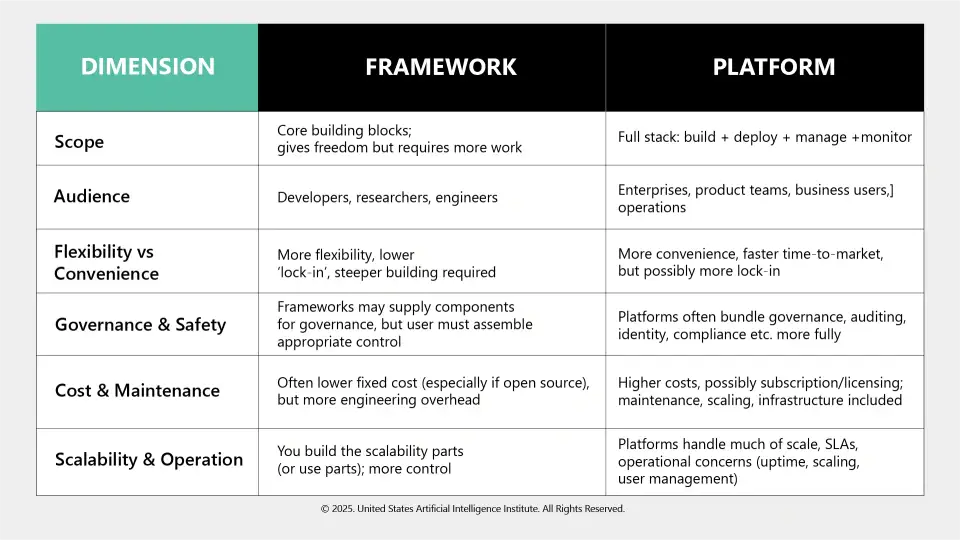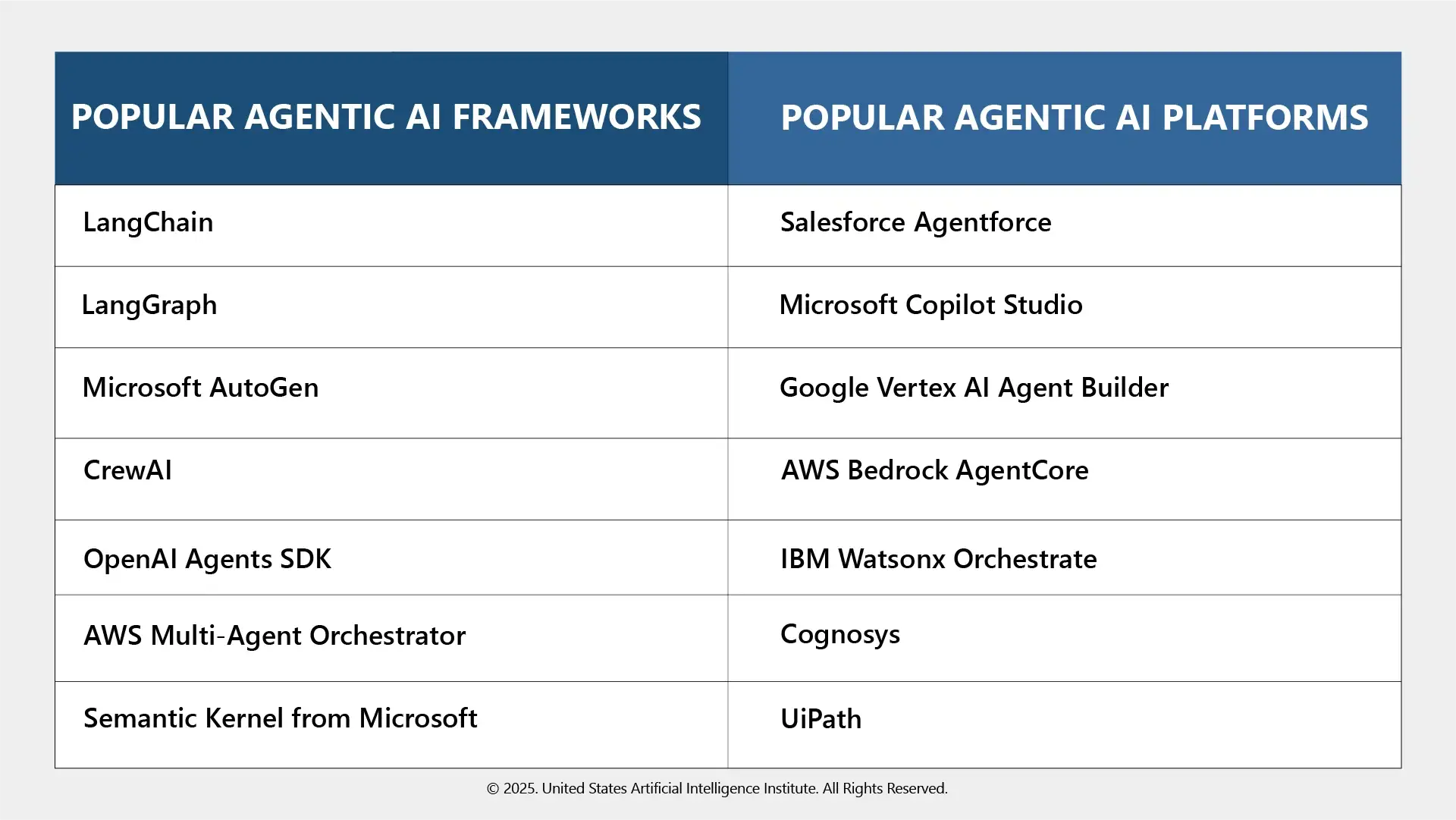
Organizations are fascinated by the transformative capabilities of Agentic AI tools and are eager to integrate them into their business operations. But building Agentic AI can take different approaches. Artificial Intelligence is one of the latest and intriguing technologies helping businesses become more productive, autonomous, and accurate. Today, agentic AI has become a hot topic of research, business strategy, and system architectures, for the numerous benefits it offers.
However, not all agentic systems are built or used in the same way. There are two important methods for building them - via frameworks or platforms. Both of these have their own strengths and limitations. Organizations or AI developers who understand its intricate differences can properly evaluate investments, design effective systems, and implement governance.
So, let’s dive deeper and understand what Agentic AI Frameworks and Agentic AI platforms are, what their core differences are, and their real-world usage.
What is Agentic AI?
First, let us understand the basics before diving deep into frameworks and platforms. Agentic AI is an intelligent AI system that can act autonomously to perform any specific task. It works by breaking down the tasks, planning, adapting to context, and interacting with tools and data, with minimum human oversight.
They normally consist of several components, such as LLM (Large Language Model) or a model for reasoning/perception, tool integration or APIs, memory, orchestration among agents or sub-tasks, decision-making logic, etc.
By 2028, one in three enterprise software applications is expected to feature Agentic AI capabilities.
- Gartner
Agentic AI frameworks are developer-centric and offer more customizable building blocks for advanced agentic AI systems. However, they require strong programming skills. Whereas platforms offer ready-made and business-focused solutions with low/no-code tools. They can be easily integrated and are quick to deploy. Often, organizations also combine both frameworks and platforms for more flexible AI adoption.
What is the Agentic AI Framework?
Agentic AI Framework refers to the software architecture, toolkit, and libraries that help AI engineers with the building blocks required to define, implement, and manage agentic behaviors.
Key features of Agentic AI frameworks:
Understanding Agentic AI Platforms
Agentic AI platforms are more complete solutions for the development and deployment of AI agentic products and services. They provide an end-to-end environment to support building and deploying agentic AI applications as well as managing, orchestrating, scaling, and even monetizing them.
Key features and benefits of Agentic AI Platforms
The main focus of agentic AI platforms is on accessibility, speed, and enterprise readiness through:

Why should organizations bother about the difference?
The choice between an agentic AI framework or platform can have a serious impact on an organization’s processes. From a strategic standpoint, platforms require greater dependency as they lock businesses into a vendor’s ecosystem. On the other hand, frameworks are typically more portable and customizable; however, they require greater internal resources to manage.
Moreover, platforms offer faster development and deployment with minimal infrastructure, whereas frameworks provide better customization for specific needs like handling sensitive data, privacy requirements, custom tool integration, etc.
The difference in governance and compliance also has significant implications. Agentic AI Platforms come with built-in audit trails, access controls, and compliance with regulations necessary in industries like healthcare, finance, etc. Agentic AI frameworks require additional effort to comply with regulations and standards. Most importantly, the cost and skill are higher in the case of taking the framework approach as compared to leveraging platforms.
When to use what?
Agentic AI frameworks can be a better choice for organizations if:
Agentic AI platforms make sense for organizations:
Often, organizations use both frameworks for internal custom development and platforms for non-core or bolt-on capabilities.

What 2026 Suggests?
Agentic AI is advancing quickly, but a lot of the work is still experimental. A study by Gartner suggests that more than 40% of agentic AI projects could be abandoned by 2027 because of the huge gap between hype and its tangible value.
At the same time, market forecasts also show strong growth in 2026 and beyond, with an estimated market size of $236.03 billion by 2034, exhibiting a CAGR of ~45.82% which shows how organizations are looking to master this technology to gain a competitive advantage.
Mastering agentic AI will require a hybrid strategy where professionals need to leverage both frameworks for internal and customized development and platforms for their scalability features.
However, with the increasing adoption of AI agents, concerns regarding their safety, runtime governance, and behaviors also arise. So, rigorous governance is essential either directly in the tools or as an added layer of oversight.
Final Word
It must be now clear that though Agentic AI platforms and frameworks overlap, their roles are distinct in building autonomous AI systems. While frameworks are the foundational pieces that offer greater flexibility and control to developers, platforms provide more integrated and scalable solutions with faster development and deployment.
For many organizations, the hybrid approach is best, where they employ both frameworks for custom agent capabilities and platforms for non-core or user-facing agentic features. With the agentic AI market growing fast, choosing the right approach will be a strategic step in deciding the course of action for the next 1-4 years.
Explore USAII® leadership and AI engineer certifications to learn how these approaches work, determine the best option as per your organizational needs, and build and deploy systems effectively.
Follow us: